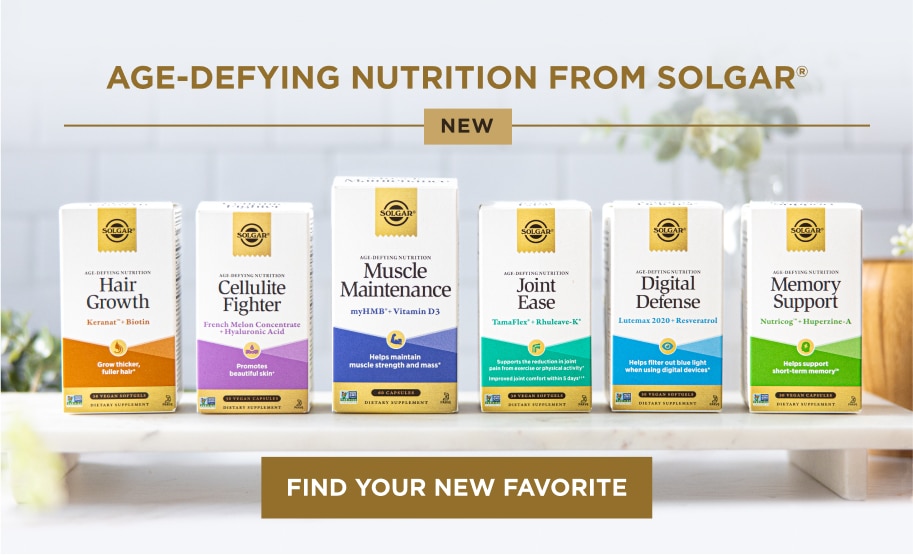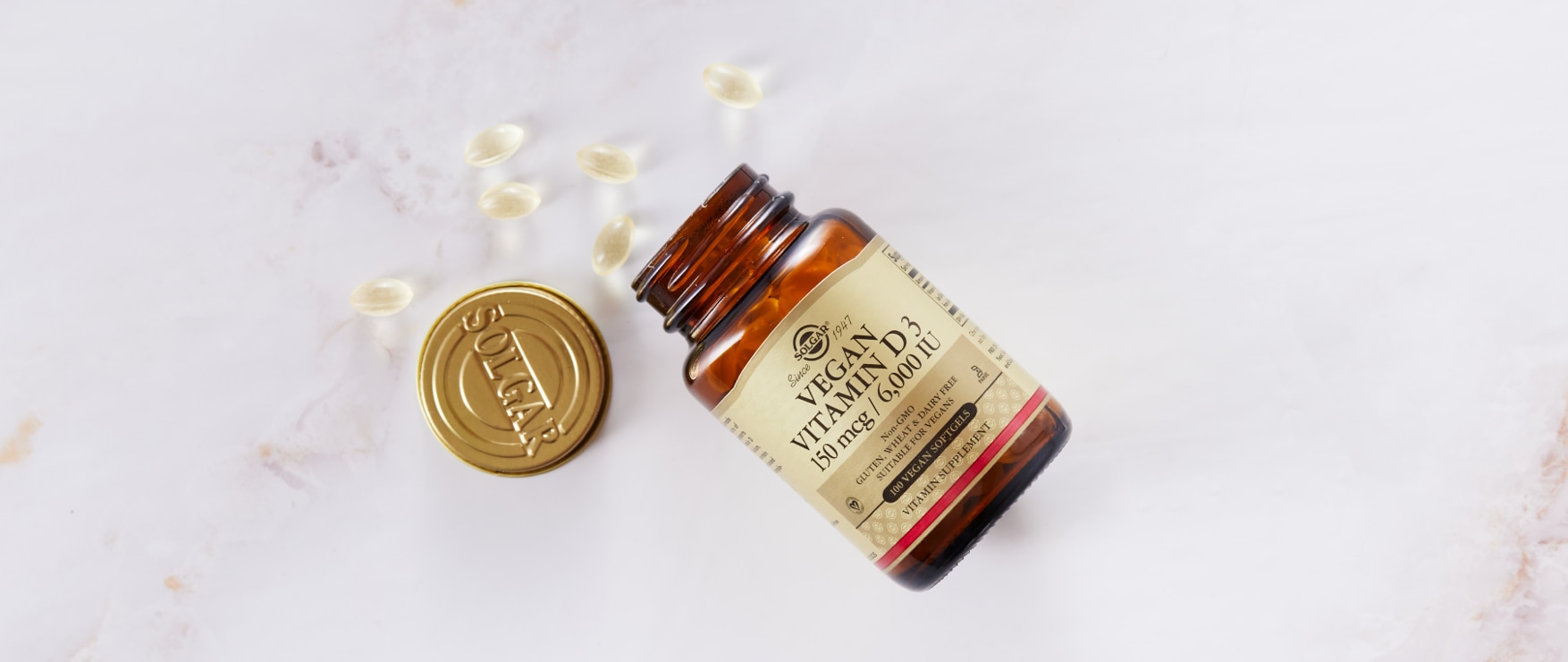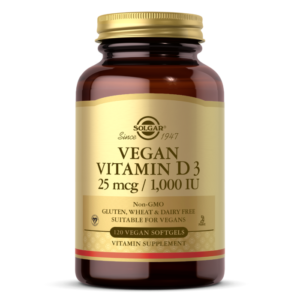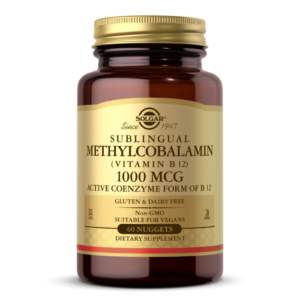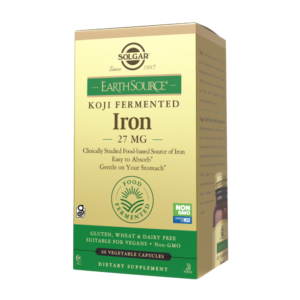Key Takeaways:
- A plant-based diet has many health benefits, but some essential nutrients are hard to get.
- The most important supplements to take on a plant-based diet include Vitamin B12, Vitamin D, Iron, and Omega-3 Fatty Acids.
So, you’re thinking about going vegetarian, vegan, or just eating more plants.
Here’s the good news: a plant-based diet can be one of the healthiest ways to eat. That is, if you’re eating a balance of whole grains, vegetables, fruits, and plant-based proteins.
However, certain vitamins and minerals aren’t as prominent in plant-based foods. Being extra mindful about certain nutrients will help ensure your body gets what it needs.
Keep reading to discover the most important supplements to complement a vegan or vegetarian diet.
What vitamins & supplements should I take as a vegan?
1. Vitamin B12
Don’t miss out on this key nutrient! Vitamin B12 helps keep the body’s nerve and blood cells healthy and helps turn food into cellular energy.1 Because vitamin B12 is mostly found in animal foods, many vegetarians and vegans are at a greater risk of not getting enough.2
Therefore, it’s important to make sure you’re getting vitamin B12 from other sources.
Vegan food sources of vitamin B12
-
-
- Nutritional yeast
- Tempeh
- Fortified cereals
-
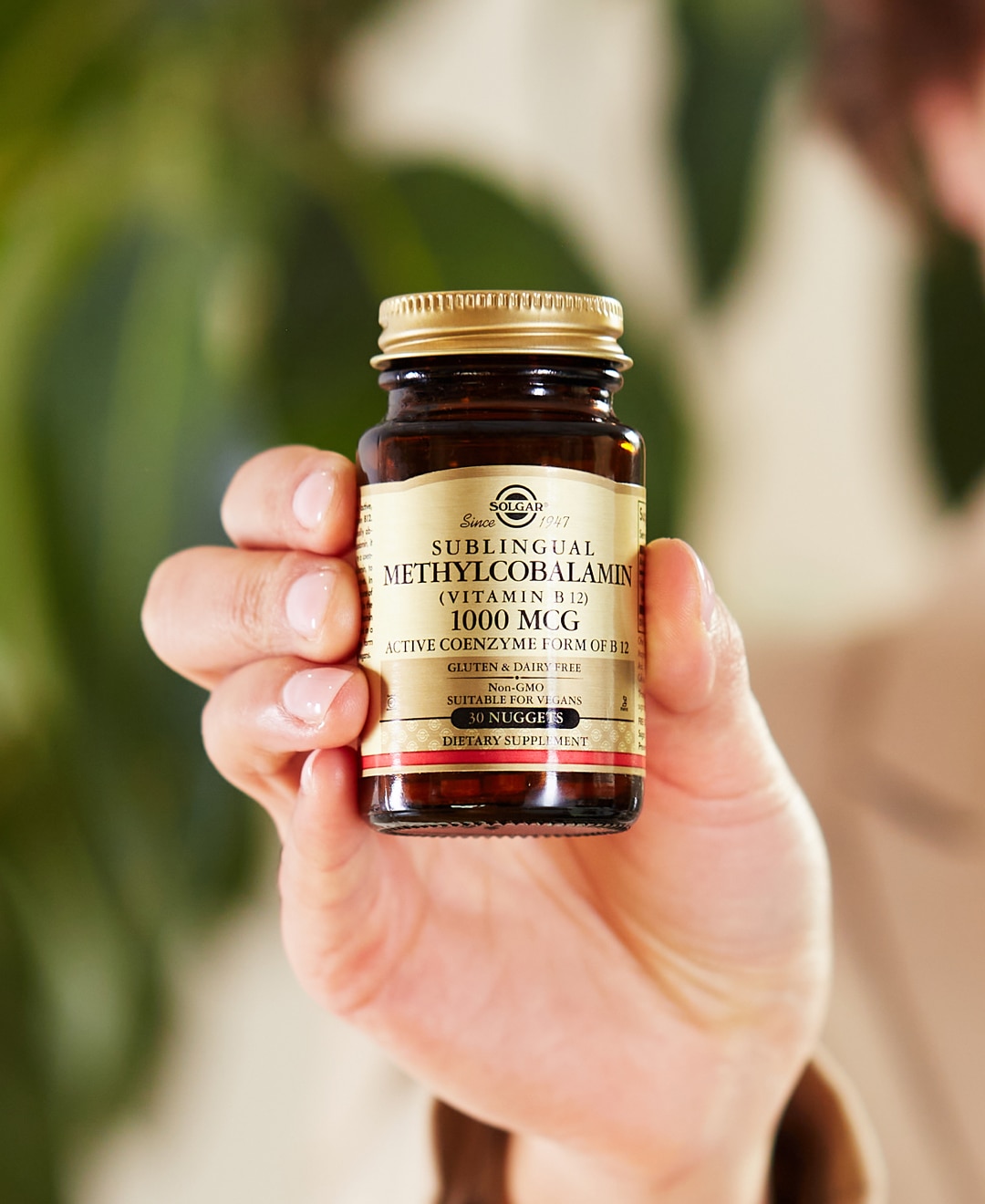
Our recommended vegan vitamin B12 supplements
Solgar® Methylcobalamin (Vitamin B12) Nuggets
Methylcobalamin is the body-ready, active form of vitamin B12. One fast-dissolving nugget may help convert food into energy, support nervous system health, and support a healthy cardiovascular system.*
In an easy-to-take, vegan liquid formula, this B12 provides a great solution for anyone who has difficulty swallowing pills or capsules. The liquid formula is easily absorbed by the digestive tract and offers 2000 mcg of vitamin B12 and seven other essential B-vitamins.
Learn more about what each B-vitamin does for the body and where to find them.
2. Vitamin D
When it comes to maintaining healthy bones and a healthy immune system, vitamin D is a key player.3
Getting enough vitamin D can be a challenge, even for people who aren’t vegan. The best source of vitamin D is sunlight, but environment, age, and other factors can hinder the body’s ability to absorb it. Additionally, many of the foods highest in vitamin D (red meat, oily fish) come from animals.
Vegan food sources of Vitamin D
- Mushrooms
- Fortified plant-based milk, cereals, and orange juice
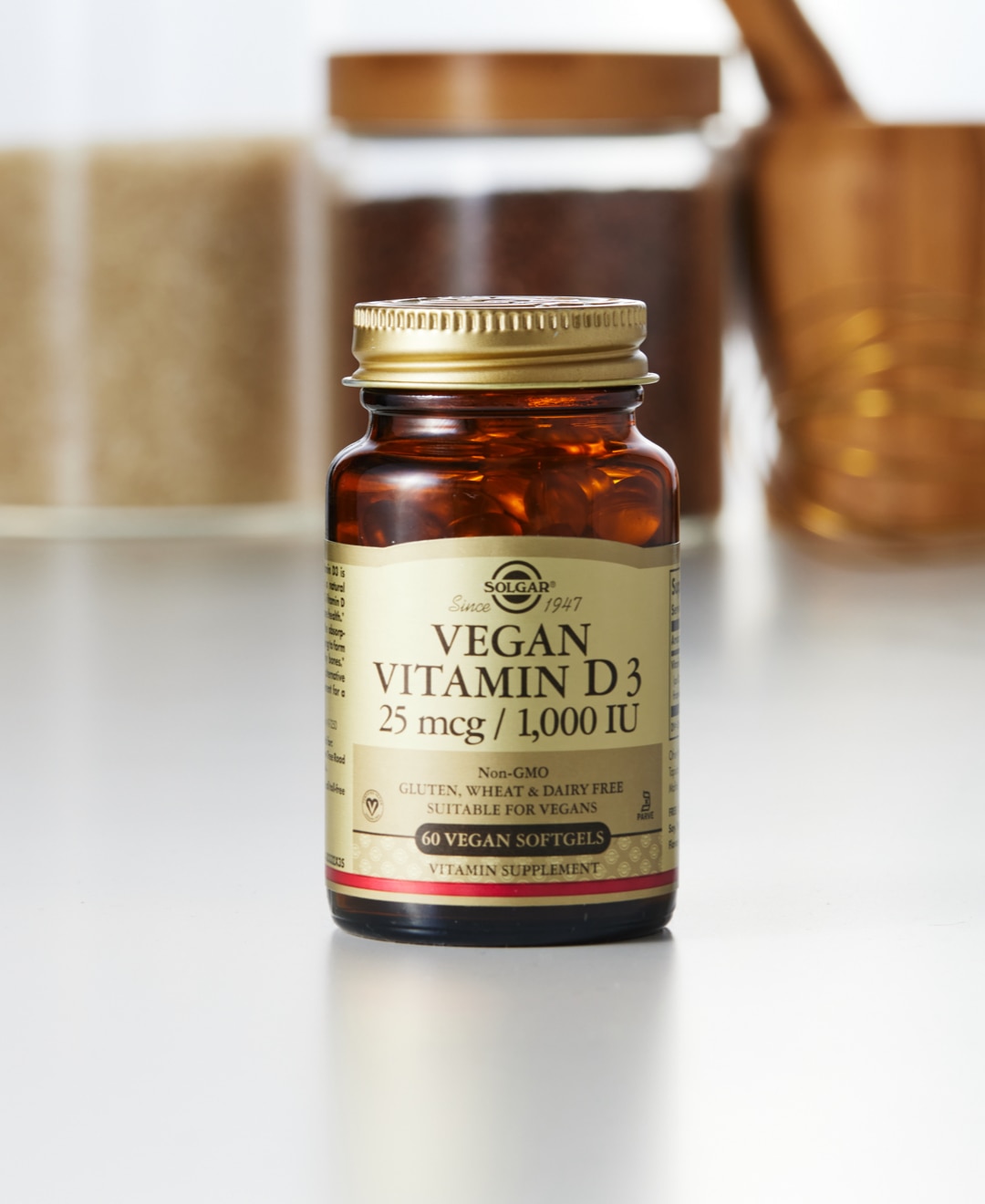
Our recommended vegan vitamin D supplement
Solgar® Vegan Vitamin D3 25 Mcg (1000 IU)
Our NEW Vegan Vitamin D3 is made with naturally & responsibly-sourced lichen, a slow-growing plant that lives on rocks and trees. Each plant-based softgel offers 25 mcg per serving and helps:
- Maintain strong bones and teeth by supporting the absorption of calcium and phosphorus*
- Maintain a healthy immune system*
- Support nerve and muscle function*
Read more: The Sunshine Vitamin: What You May Not Know About Vitamin D.
3. Iron
Iron is like the engine of your bloodstream. It helps to form proteins in red blood cells to transport oxygen from your lungs to the rest of the body.4
People who eat a plant-based diet are at a greater risk of being low in iron. Non-heme iron in plant-based foods is not absorbed by the body as easily as heme iron, which is found in animal products.5
Vegan foods sources of iron
- Beans
- Spinach
- Quinoa
- Tofu
- Dried fruits
- Nuts and seeds
Our recommended vegan iron supplements
Solgar® Earth Source® Koji Fermented Iron
This iron supplement is clinically studied to be released more slowly, giving you a steadier absorption rate when compared to more common sources of iron.
It supports red blood cell production and helps deliver oxygen to cells.* It also supports energy utilization.*
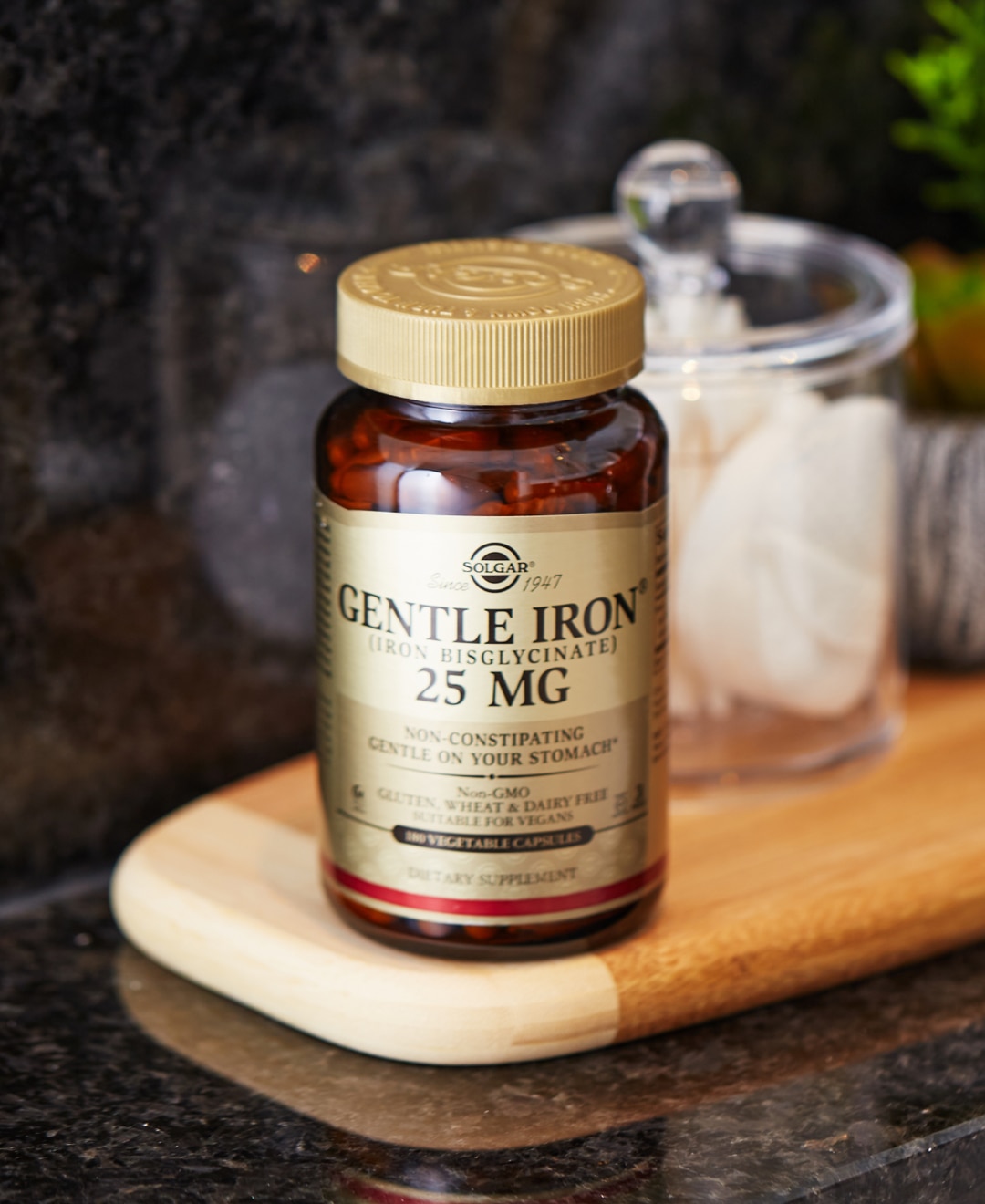
Solgar® Gentle Iron Vegetable Capsules
Solgar® Gentle Iron helps promote energy utilization, improve iron status, and form new red blood cells that help transport oxygen throughout your body.* This patented, chelated formula is non-constipating and gentle on your stomach.
4. Omega-3 Fatty Acids
Good for the heart, skin, and immune system—omega-3 fatty acids are a triple benefit nutrient!*
Since the body can’t make omega-3 fatty acids on its own, it’s important to get them from food or supplements. Typically the highest sources of these essential fatty acids are found in fish and seafood. Thankfully, if you eat a vegan or vegetarian diet, there are other ways to ensure you’re getting enough.
Vegan food sources of omega-3 fatty acids
- Walnuts
- Flaxseeds
- Chia seeds
- Hemp seeds
- Edamame
- Seaweed
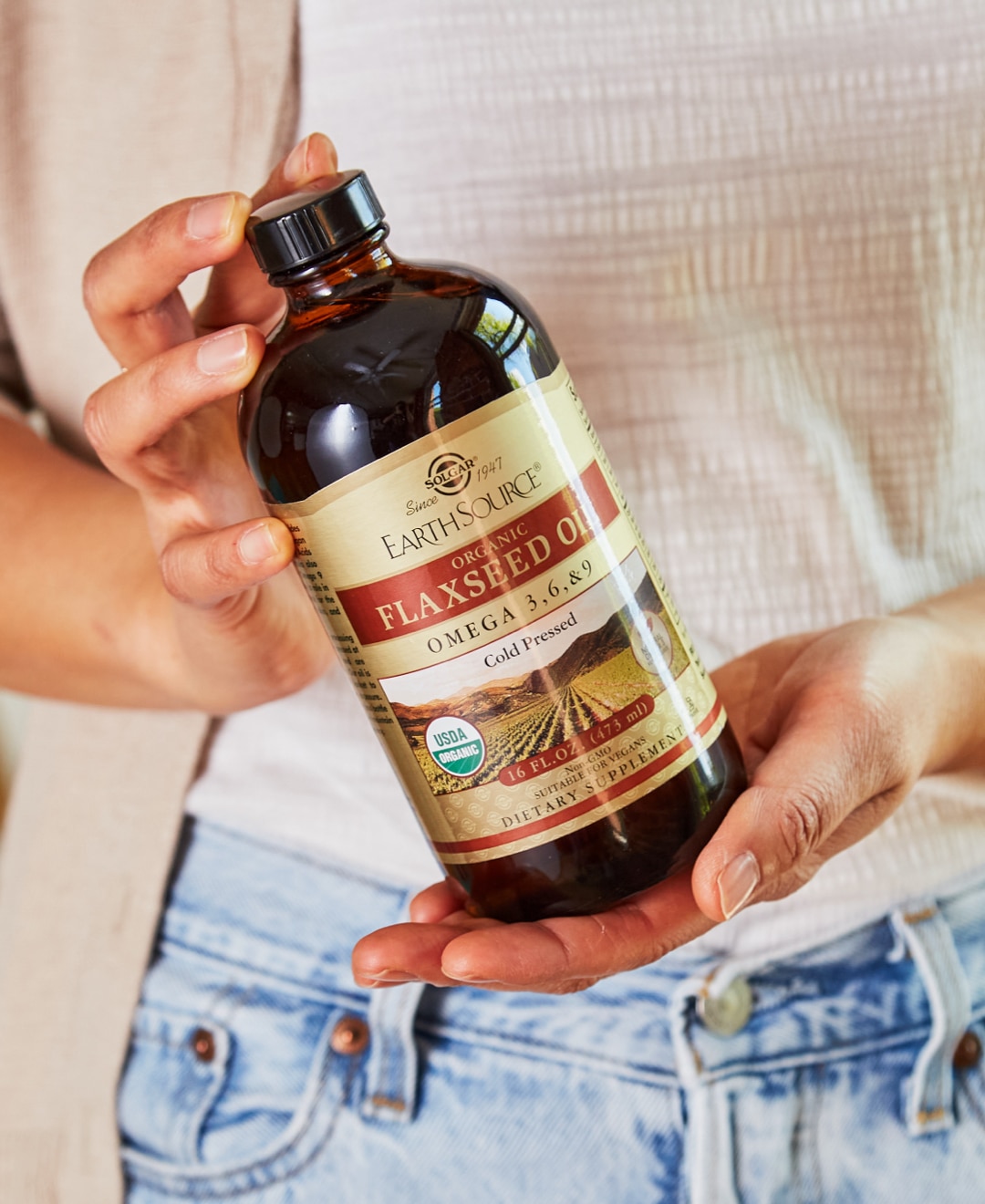
Our recommended vegan omega-3 supplement
Solgar® Earth Source® Organic Flaxseed Oil
Flaxseed oil is one of the most concentrated vegan plant sources of Omega-3 fatty acids. This formula provides one of the most concentrated plant sources of ALA omega-3s found in nature, while also supplying omega-6 and omega-9 acids, linolenic acid, and oleic acid. The flaxseeds are pressed using a unique cold-pressing method and are processed without solvents.
Read more: Everything You Need to Know About Omega-3s.
GET THE LATEST UPDATES AND EXCLUSIVE DEALS WHEN YOU SIGN UP FOR OUR NEWSLETTER!
Summing it up
Whether you’ve been vegan for a while or just starting to make a transition, it’s important to properly plan your meals and supplements so you get the nutrients you need. Vitamin D, B12, iron, and omega-3 fatty acids are key nutrients to keep in mind!
Always check with your healthcare practitioner to discuss your personal diet and supplement needs.
For more health related tips, and for the latest on new Solgar® products, follow us on Instagram (@solgar) and TikTok (@solgarvitamins)!
*These statements have not been evaluated by the Food and Drug Administration. These products are not intended to diagnose, treat, cure or prevent any disease.
The information provided on this site is intended for your general knowledge only and is not a substitute for professional medical advice or treatment for specific medical conditions. Always seek the advice of your physician or other qualified healthcare provider with any questions you may have regarding a medical condition. The information on this website is not intended to diagnose, treat, cure or prevent any disease. Never disregard medical advice or delay in seeking it because of something you have read on the Solgar® site.

